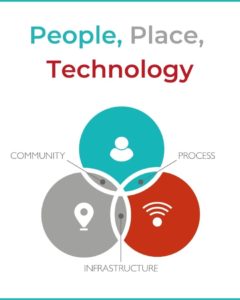Processes apply to just about everything we do! In business and in life.
Processes keep everything running smoothly, and we often overlook their value. It’s only when they break that we realise how important they are to our everyday lives.
First, let’s clear up some definitions. I often hear processes and procedures used interchangeably. But they are actually two completely separate things. A process outlines the steps for accomplishing a task or goal. A procedure defines the steps for successfully completing a process.
PROCESS = doing the right things
PROCEDURES= doing things right
We carry out a lot of processes on a regular basis without having to think too much about them.
Take making a cup of tea, is that a process?
You bet. It may be a simple task but it’s definitely a process. First, we need to have all the ingredients before we start: water, tea, milk, sugar. Then, we need materials to make the perfect cuppa: kettle, cup, spoon. And finally, we need a power supply.
Then the process itself begins. Step one, check that there is sufficient water in the kettle. Step two, turn on the kettle. Step three, add ingredients to the cup. Step four, add the boiling water. What could possibly go wrong?
Well, if you turn on the switch without checking the water level then the element will blow and the kettle will break. If the milk is out of date then your tea will taste terrible and it won’t do your health much good either. If the cup is cracked then your tea will spill everywhere and may even cause you some harm at the same time.
This demonstrates how a simple, daily exercise is in fact a process and has to be effectively managed. We all want that wonderful quality cup of our favourite drink.
Now think about your workplace processes.
Using the same approach, we quickly discover that all the tasks we took for granted pre-pandemic are out of date. What once made an office run smoothly is now a bit broken, and the process needs to be redefined.
The way we interact with customers, colleagues, and our work environments has changed radically. As we face a return to work, there’s a need to consider those key processes that surround us in the workplace.
Let’s look at a couple of examples.
Consider our customers. Previously, we relied on face-to-face meetings to manage our key accounts, but now we meet via online technology. So we must ensure this platform is available whenever it’s needed to communicate with key stakeholders. This is a communication process and it means your Service Level Agreements need to be challenged and made fit for purpose as we emerge from lockdown.
Then there’s our colleagues and how we used to interact in the office. Activities that we carried out automatically will have changed as we consider the logistics related to safe systems of work.
What about the future workplace?
Many companies are considering a hybrid approach to the return to the workplace, an approach that will challenge how people interact with established business processes. There’s a great opportunity to evaluate and automate a variety of these processes to deliver optimum performance in the future.
Like, for example, processes involving traditional paper forms. It may seem a simple thing, but if people are splitting time between work and home, the process around a paper form changes. Consider the number of times a form might be used throughout its lifecycle, from initial employee induction to training and personal development reviews. Multiply this by your employee headcount and you’ll start to get a feel for the amount of admin time that’s involved.
Now think about how streamlined this process could be if it was designed to remove all the waste, errors and rework. That’s the true power of business process improvement and it can be applied to every area of the business and to the new working model.
How will you deliver this change?
All of this activity involves change in company culture and people’s habits. It’s therefore vital that employees are involved in the design of new hybrid workplace processes.
At SPACE, we have vast experience of working alongside clients and delivering process improvement programmes that have a positive impact on business results. With our experience in change management, we can help you effectively communicate your improvement plans so all employees understand their roles and responsibilities. When a business’s processes and people are aligned, it’s easier to deliver against the company’s overall goals and objectives.
So many of our processes will have changed. As we return to the workplace, it’s vital that we evaluate how we’ll manage these new processes in the future. Just like we learned from the tea example, it doesn’t take much to break a process. We all want a perfect cuppa and a well-oiled workplace.
This blog is the third in a series supporting our Strategic Workplace Review, a bespoke offering that brings together four core services to help you get the most out of your return to the workplace.



